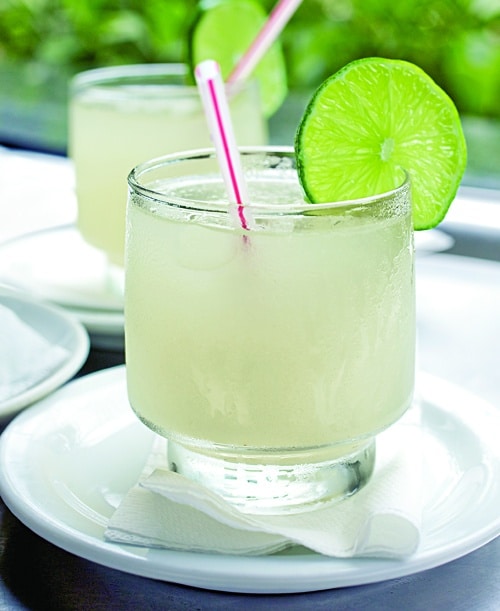Brazil's Real Caipirinha: The World's Toughest Drink
It begins one frozen january night on an unlikely island — Manhattan. I'm at my favorite speakeasy, PDT ("Please Don't Tell"). You enter by stepping through a phone booth inside a hot-dog store — seriously. The weather must be making me reckless, because I order a caipirinha (kye-peer-EEN-ya), the national drink of Brazil. The zingy blend of Key limes and a powerful liquor called cachaça (ka-SHA-sa) warms me. But something's not quite right.
My eyes aren't watering. My throat isn't catching fire. This is not at all how I remember the drink. The last time I consumed a caipirinha was when I lived in South America. On a dreamy island in Rio de Janeiro's bay called Ilha Paquetá, I had five of the adventurous yet delicious cocktails before realizing, to my surprise, that I could no longer walk. Next thing I knew, I was waking up on the beach, splayed out like a starfish. Entirely unlike the drink I experienced 20 years ago, the one in front of me is downright gentle.
"What happened to this stuff?" I ask.
"That's Leblon," says the bartender. "It's a new premium brand." He explains that the cachaça is made in special copper-pot stills and then aged for several years in oak cognac casks.
Premium? Aged? Has the dreaded caipirinha become civilized? What's become of the real thing? This is my excuse to escape the slush along New York's curbs for the Brazilian islands so I can find out for myself.
A few weeks later I'm in Rio, at the symbolic home of the city's serious cocktail lovers, a bar called the Academia da Cachaça. I've been invited here by Eliana Pessanha, a caipirinha connoisseur with a mane of blond hair. Lined along the walls, enticingly backlit, are 300 brands of the cane liquor.
"For centuries the caipirinha was a poor man's drink," Eliana explains, "only for sweaty rural laborers and poor Carnival revelers." Upper-crust Brazilians turned up their noses, regarding it much the way Americans view moonshine. "But lately it's become quite trendy. Handcrafted, artisanal versions of cachaça are taking over."
I'm shocked to see what's on the drink menu. Some of the aged cachaças cost up to $100 a shot. There are mango caipirinhas. Passion fruit. Papaya. Am I ordering a stiff drink or a smoothie?
"In the United States, people drink only the lime caipirinhas," says Eliana. "But lime doesn't go well with food. The flavor is too strong. Down here, we think anything is possible."
Clearly, there's a whole world of taste waiting to be discovered.
Over the next week, as I island-hop off Brazil's coast, I sample a dazzling array of exotic — and pricey — fruit caipirinhas. I sip caipirinha with pineapple and mint on the sands at Foro Island. Caipirinha with fresh blueberries in the beach town of Búzios. I toss back açaí caipirinha, strawberry caipirinha, even a Red Bull caipirinha.
Finally, I return to my old caipirinha island haunt from 20 years earlier, Ilha Paquetá. Stepping from the ferry, I'm amazed to find that almost nothing has changed. Cars are still banned. The colonial facades continue to crumble. The island is also, I'm told, a holdout of the old-school lime caipirinha. In the dusty lounge of the Lido Hotel, a grinning, elderly bartender wearing a soccer singlet whips up a classic brew with a brand called 51, a mass-produced cachaça that's barely more expensive than water.
"With a caipirinha, the cheaper the cachaça, the better it tastes," he opines while pulverizing the lime and sugar with a wooden pestle. He slides over the glass. Cautiously, I take a sip.
Oh yes. This is the caipirinha I remember from all those years ago. The raw concoction scalds my throat and packs a wallop like a baseball bat to the back of the head. I can't confirm that cheaper is better, but it certainly brings back the memories. I'm older now, and slightly wiser. I stop at one. This time around, I don't want to wake up splayed out like a starfish on the beach.
